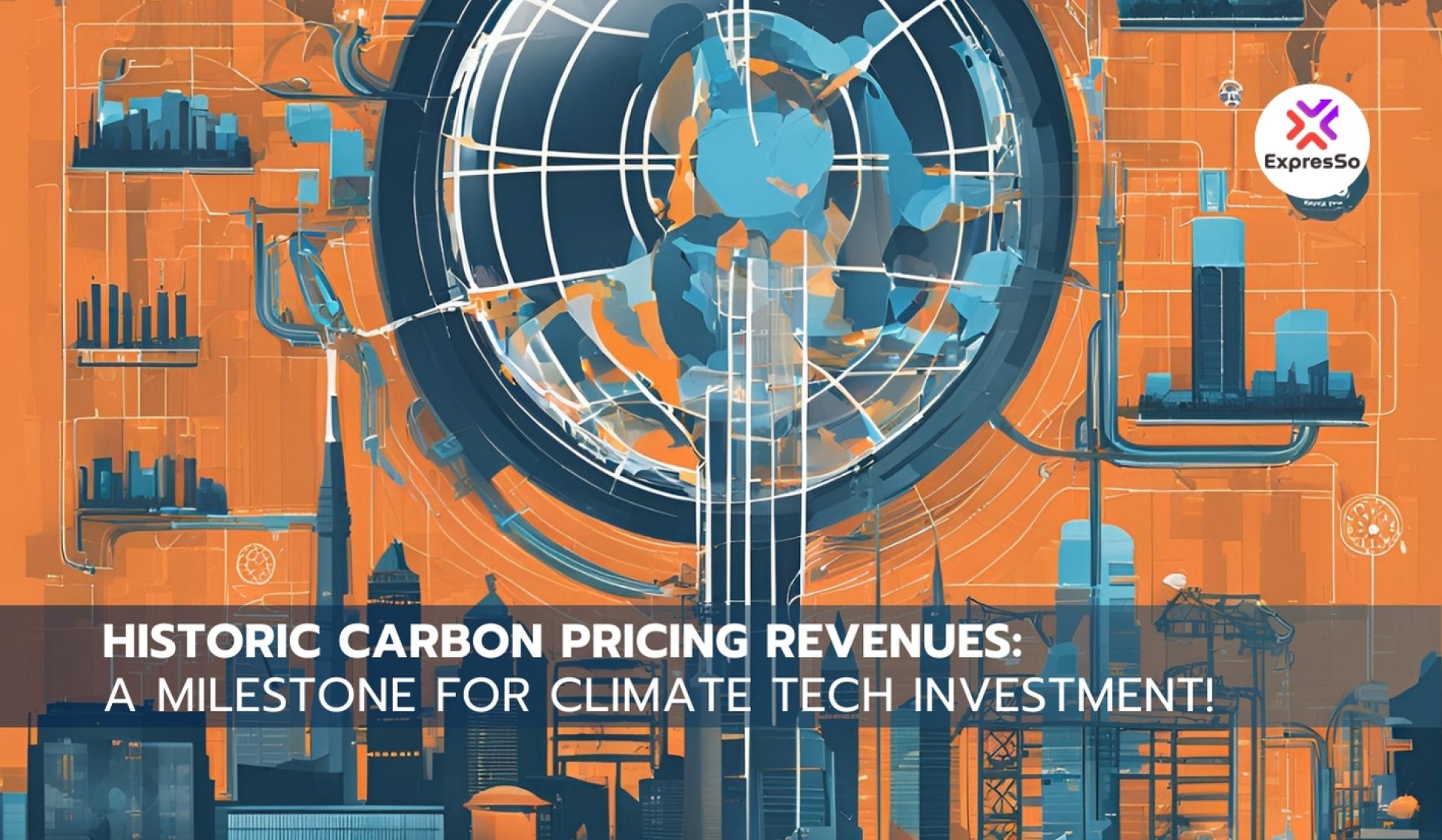Historic Carbon Pricing: A Milestone for Climate Tech

The battle against climate change is gaining significant momentum! In 2023, carbon pricing revenues reached an impressive $104 billion, with over half allocated to essential climate and nature initiatives, according to the World Bank. This remarkable growth reflects a substantial increase in carbon pricing coverage, which now represents 24% of global emissions---up from just 7% a decade ago!
The latest World Bank report highlights progress made in carbon pricing implementation by large and middle-income countries such as Brazil, Chile, Colombia, India, and Türkiye. This upward trend signifies a shift towards more robust climate policies worldwide, underlining the growing recognition of the need for effective mechanisms to tackle greenhouse gas emissions. Axel van Trotsenburg from the World Bank aptly stated, "Carbon pricing can be one of the most powerful tools to help countries reduce emissions." However, it's important to note that less than 1% of global emissions are currently priced at levels recommended to limit global temperature rise to well below 2ºC.
At ExpresSo, we are excited to take a leading role in this crucial transformation. Our commitment to sustainability and innovation positions us at the forefront of this evolving field. We're eager to harness this momentum to create a greener tomorrow!
In addition to carbon pricing advancements, several other energy-related developments are worth noting:
- South Africa's Coal Closure Delays: Eskom, South Africa's public utility company, is considering delaying the closure of certain coal plants until 2030 while transitioning to greener power sources.
- China's Cobalt Purchases: China plans to purchase up to 15,000 tonnes of cobalt from local producers, a record amount crucial for electric vehicle battery manufacturing.
- Investment in Clean Cooking: At the International Energy Agency's Summit on Clean Cooking in Africa, governments and companies committed $2.2 billion to fund cleaner cooking methods, though an estimated $4 billion annually is needed to provide access by 2030.
- Electric Vehicle Electricity Usage: U.S. electricity consumption from electric vehicles surged by over 50% year-on-year in early 2024, highlighting the growing impact of EVs on energy demand.
- Australia's Solar Capacity: Australia's rooftop solar capacity is set to exceed the country's total electricity demand in the coming decades, with expectations that it will more than triple by 2054.
As we look to the future, we invite you to join the conversation. What impact do you think these policy shifts will have on the climate tech sector? We want to hear your thoughts and insights!
Stay connected with us as we continue to explore the intersection of policy, technology, and sustainability. Together, we can work towards a greener future!
Reference: World ฺBank


